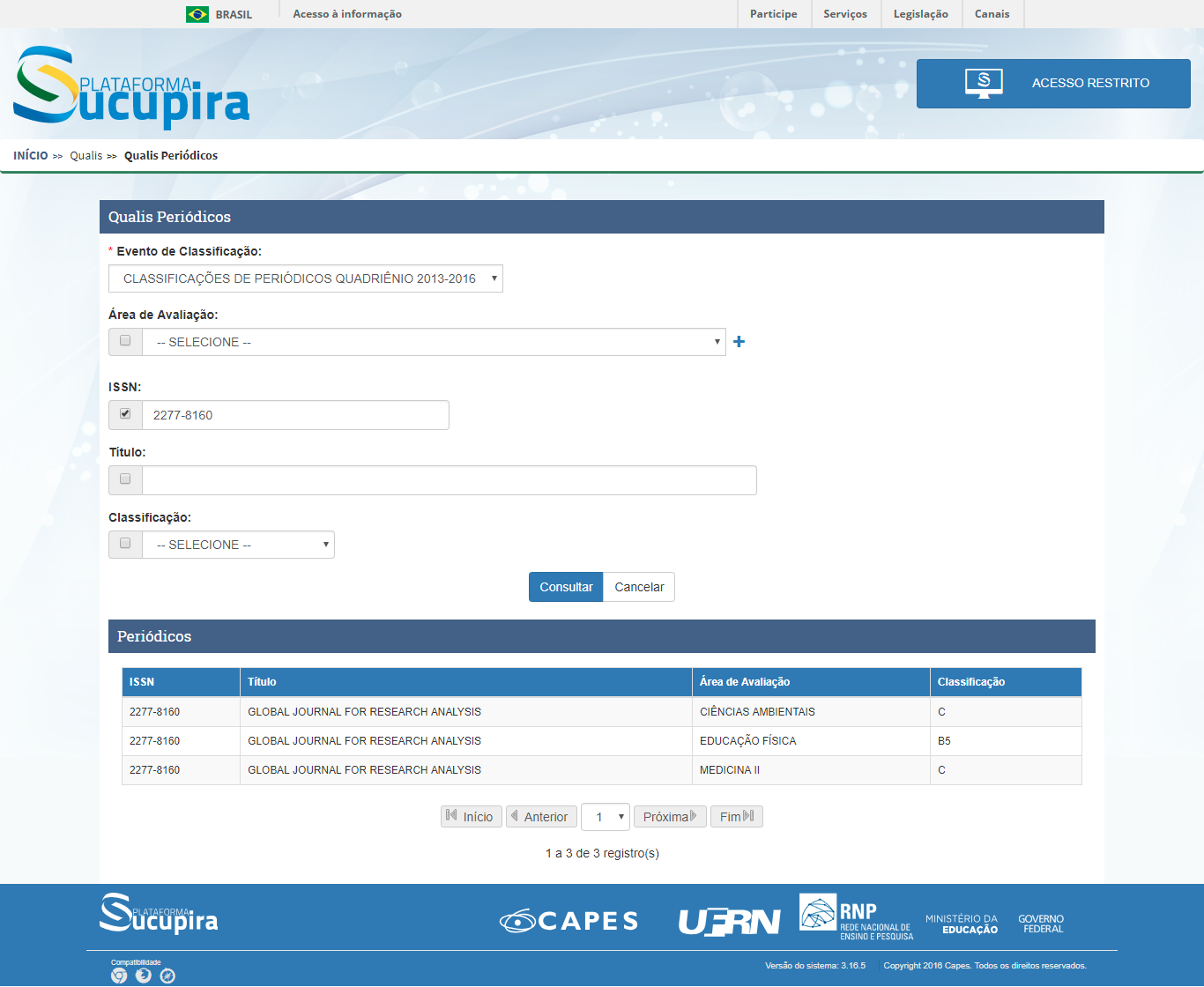Publication Ethics - GJRA
The Global Journal For Research Analysis strictly obeys with the moral justice and ethics, and would likewise direct a lawful audit if required on a case by case basis. The journal guarantees reproducing or promoting does not impact the decision of the editors.
Responsibilities of Authors
An author is expected to be responsible for the presented data and information in their respective article along with taking the responsibility of the significance. The authors are expected to present genuine original outcome of their research, and an appropriate and relevant citation should be considered while representing the data and documenting the discussion. Authors must provide information which is understandable and reproducible. Supporting information such as figures and tables provided by the authors should be legible and must be reproducible technically.
An author should not repeat any previous research data from themselves or anyone else while submitting an original manuscript for a primary publication in any of the journal. The reported scope of work should be based on proper citation from the other publications influencing. Before submitting any article, authors should check the scope of the journal and in case of any query they should contact the Editorial office.
Authors should strictly adhere to the authorship criteria. All listed authors must have made a significant contribution to the research presented in the manuscript and approved all its claims. Any person to be considered as an author of an original research article must have contributed in any of the following ways: designed the study, executed the study or conducted the experiments, have taken part in analyzing the data, supported in documenting the article and drawing the conclusion, spearheaded the project as a principal investigator. It is mandatory to include everyone who made a significant contribution towards the completion of the research work.
Any financial or personal interest that governs the findings or research in the manuscript along with the details of financial support and its sources should be revealed. Through the submission of an article the respective authors agrees that the article neither is under consideration nor published in any other journal.
Responsibilities of Reviewers
Confidentiality: Reviewers should not share any information from an assigned manuscript with outsiders without the prior permission from the Editor or preserve the data from an assigned manuscript.
Competence: Reviewer with fair expertise should complete the review. Assigned Reviewer with inadequate expertise should feel responsible and may decline the review as it is presumed that reviewer will be an expert in the respective field.
Constructive assessment: Reviewer comments should appreciate positive aspects of the work, identify negative aspects constructively, and indicate the enhancement needed. A reviewer should explain and support his or her judgment clearly enough that Editors and Authors can understand the basis of the comments. The reviewer should ensure that an observation or argument that has been previously reported be accompanied by a relevant citation and should immediately alert the Editor when he or she becomes aware of duplicate publication. A reviewer should not use any kind of abusive language while commenting on an article. Judgment of each article should be done without any bias and personal interest by the assigned reviewer.
Impartiality and Integrity: Reviewer’s decision should solely depend on scientific merit, relevance to the subject, scope of the journal rather than financial, racial, ethnic origin etc., of the authors.
Disclosure of conflict of interest: To the extent feasible, the reviewer should minimize the conflict of interest. In such situation, reviewer should notify the editor describing the conflict of interest.
Timeliness and responsiveness: Reviewers should morally abide to provide the review comments within the stipulated time and be active enough in responding to the queries raised by the editor if any.
Responsibilities of Editor and Editorial Board
Editors have a responsibility to maintain the integrity of the published literature, if required,by publishing errata or corrections identifying anything of significance, retractions, and expressions of concern as quickly as possible. Editor must comply with the policy guidelines provided by the publisher and fulfill the responsibilities bestowed upon with integrity.
Review process: Editors are responsible for monitoring and ensuring the fairness, timeliness, thoroughness, and civility of the peer-review editorial process.
Timely suggestion to the respective journals for covering relevant and significant topic by the Editor is essential for the growth of the journal.
- Towards Readers and Scientific Community
- ● To ensure that the content or the author information present in the manuscript is legible.
- ● To evaluate all manuscripts such that they fall within the scope of the journal.
- ● Maintain the journals internal integrity by suggesting the corrections, dealing with retraction, supplemental data etc.
- ● Working with the publisher to attract the best manuscripts and research that will be of interest to readers.
- ● Ensure that all involved in the publication process understand that it is inappropriate to manipulate citations.
- Journal Role
- ● Decision-Making: He/she is entitled to carry out decision-making in consultation with reviewers or members of the editorial board.
- ● Impartiality: An Editor should evaluate manuscripts for their intellectual content without any bias towards race, gender, sexual orientation, religious belief, ethnic origin, citizenship, or political philosophy of the authors.
- ● Confidentiality: The Editor or any Editorial staff must not disclose any information about a submitted manuscript to anyone other than the corresponding author, reviewers, potential reviewers, other editorial advisers, and the publisher, as appropriate depending on the need and stage of processing.
- Publisher Role
- Supporting fair and timely Peer review process with the valuable inputs and from the responsible Editors and Reviewers.
- The publisher adheres to the guidelines and procedure designed to ensure the fair and best practice followed by the industry.
- Making constructive recommendations for improving the overall process along with better production support and global dissemination of the information published in the journals.
- The publisher ensures the smooth functioning of the web development, web management, social media management for journals and articles with the help of the staff members.
- With the vision to make scientific valuable researched information “Open Access”, IJAR - Indian Journal of Applied Research International is striving towards designing and launching innovative ways to showcase
Journals published by Global Journal For Research Analysis International are following timely rigorous peer review process to bring the recent and novel scientific information at its best possible mode. As a publisher the following policies are being considered:
Guidelines for Retracting Articles
IJAR - Indian Journal of Applied Research Journals take the responsibility to maintain the integrity and completeness of the scholarly record of the content for all end users very seriously. The journal place great importance on the authority of articles after they have been published and our policy is based on the best practice followed in the academic publishing community.
It is a general principle of scholarly communication that the Editor of a learned journal is solely and independently responsible for deciding which article(s) shall be published out of the submitted articles in a particular time. In making this decision, the Editor is guided by the policies of the journal`s Editorial board and constrained by such legal requirements in force regarding copyright infringement and plagiarism. An outcome of this principle is the importance of the scholarly archive as a permanent, historic record of the transactions of scholarship. Articles that have been published shall remain extant, exact and unaltered as far as possible. However, occasionally unavoidable circumstances may arise where after publication the article requires retraction or even removal from a particular journal. Such actions must not be undertaken lightly and can only occur under exceptional circumstances, such as:
Article withdrawal: This is only used for “Article in Press” which represents the early versions of the accepted articles. If any article at the stage of “Article in Press”, by any means, represents infringements of professional ethical codes, such as multiple submissions, bogus claims of authorship, plagiarism, fraudulent use of data or similar incidences, the article may be withdrawn depending on the Editor’s discretion.In this regard, Editor’s decision must be considered as final following the deep assessment and analysis of the situations, on a case by case basis.
Article retraction: Infringements of professional ethical codes, such as multiple submissions, sham claims of authorship, plagiarism, fraudulent use of data and similar claims will lead to the retraction of an article. Occasionally, a retraction may be considered to correct errors in submission or publication.
Article removal and replacement: Subjected to legal limitations of the publisher, copyright holder or author(s). Identification of false or inaccurate data representation which may pose a serious health risk and involves any means of scientific data tampering or other fraud hindering fair practice of science should be treated with highest possible strictness.
The core objective of these measures is necessary to maintain the integrity of the academic record.
Encouraging academic integrity
Request evidence of ethical research approval for all relevant submissions and be prepared to question authors about aspects, such as, how patient consent was obtained or what methods were employed to minimize animal suffering.
Ensure that reports of clinical trials cite compliance with the Declaration of Helsinki 6th revision, Good Clinical Practice and other relevant guidelines to safeguard participant.
Ensure that reports of experiments on or studies of, animals cite compliance with the US Department of Health and Human Services
Guide for the Care and Use of Laboratory Animals or other relevant guidelines. Consider appointing a journal ethics panel to advice on specific cases and review journal policies periodically.
Ensuring the integrity of the academic record
Take steps to reduce covert redundant publication, e.g., by requiring all clinical trials to be registered.
Ensure that published material is securely archived.
Have systems in place to give authors the opportunity to make original research articles freely available.
Preclude business needs from compromising intellectual and ethical standards
Errors, inaccurate or misleading statements must be corrected promptly and with due prominence. Editors should follow the COPE guidelines on retractions.
UGC CARE JOURNAL APPROVAL STATUS
-
 GJRA is a Peer-Reviewed Journal and valid as per New UGC Gazette regulations
on minimum qualifications for appointment of teachers and other academic staff in universities and colleges (Date:18/07/2018)
View More Detail
GJRA is a Peer-Reviewed Journal and valid as per New UGC Gazette regulations
on minimum qualifications for appointment of teachers and other academic staff in universities and colleges (Date:18/07/2018)
View More Detail
QUALIS APPROVED JOURNAL-BRAZIL,Click Here
Journal Template
| Download Template |


 MENU
MENU


 MENU
MENU




